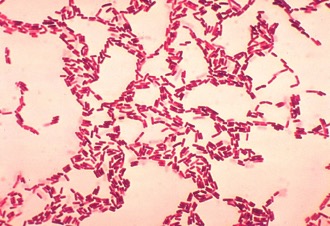
As we continue to learn how important healthy gut bacteria is for the brain and immune system, interest in cultivating a rich and diverse “gut microbiome” grows. One important tool in this quest are spore-based probiotic supplements. “Spore” is derived from the word “seed,” and spore-based probiotics are a hardy delivery system that germinate in the small intestine and help you colonize your gut with more healthy bacteria.
Modern humans face many challenges to developing and maintaining healthy gut bacteria. In fact, studies of primitive people who live much like our hunter gatherer ancestors did show their guts have about 50 percent more diversity in gut bacteria than the average American. Researchers are finding this lack of microbiome diversity plays a role in many chronic health and brain disorders, including depression and autoimmunity.
Low-fiber, junk food diets, antibiotic overuse, chlorinated water, heavy environmental toxin and pollution loads, chronic stress, alcohol, and various medications all play a role in reducing the diversity and amount of beneficial gut bacteria. As a result, opportunistic and infectious “bad” gut bacteria are able to more easily conquer the gut. This weakens the gut lining, increases inflammation, and promotes brain and mood disorders.
There are many ways we can build a healthy and diverse population of gut bacteria. The most important is to eat a whole foods diet that is predominantly vegetables and fruits. It’s important to vary the kind of produce you eat regularly. It’s also helpful to include cultured and fermented foods and take probiotics. Also, avoid drugs such as antibiotics, NSAIDs, and heartburn medication as much as possible.
Given the challenges the modern gut faces, it’s not a bad idea to make probiotics a part of your routine. This is where spore-based probiotics come in. What makes spore-based probiotics special?
- The survive the acidic environment of the stomach on their way to the intestines.
- They resist breakdown by digestive enzymes.
- They are heat stable and don’t need to be stored in the refrigerator.
- Some spores are antibiotic-resistant, which means you can take while taking antibiotics.
Once in the small intestine, spore-based probiotics can germinate if you provide the right environment with plenty of plant fiber.
Spore probiotics and healthy gut bacteria in general can help improve your health in several ways. They improve the health and integrity of the lining of the small intestine. This lining contains not only bacteria but also plenty of immune cells to defend the bloodstream from bad bacteria, yeast, toxins, undigested foods, and other pathogens that can trigger inflammation if they make their way through the gut lining into the bloodstream. This is called leaky gut.
For instance, one strain of spore-based probiotic, bacillus coagulans, has been well studied for its beneficial effect on irritable bowel syndrome (IBS) and Crohn’s disease. Bacillus coagulans produces lactic acid, which has been shown to help protect the gut and boost immune resistance to viruses. It has also been shown to lower cholesterol and reduce pain and stiffness associated with arthritis.
Ask my office for more information on how to support healthy gut bacteria and help eradicate bad bacteria to improve immune health.



Latest from the Blog
The Death of Red Dye #3
January 15, 2025What Is Red Dye No. 3? Red Dye No. 3, or Erythrosine, is a synthetic food color derived from coal tar. It was first approved by the FDA in the 1950s and quickly became one of the most popular artificial colors in food and cosmetics. Red Dye No. 3 was used in everything from candies, […] Read more
Latest from the Blog
Do You Know What Is In Your Protein Powder?
What’s Really in Your Protein Powder? Understanding the Risks Protein powders are a staple in many health-conscious diets, from athletes seeking muscle recovery to those simply aiming to boost their daily protein intake. With a wide variety of options available, choosing the right one can feel overwhelming. However, recent findings have raised concerns about what’s […] Read more